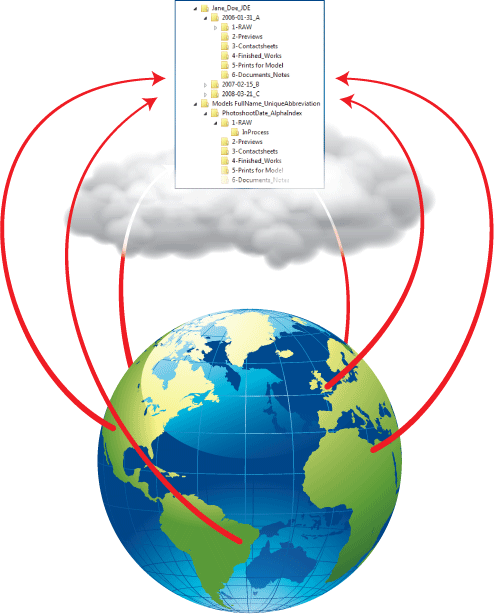
Global File System
Enterprises and large institutions must often manage complex document workflow between multiple locations. Cloud Storage offers the advantage of a convenient central location for data storage but lacks file system options for securely sharing files and their metadata. In other words, it’s important for a file that is opened and modified in one location to be immediately available in a different location once the file is closed. Another challenge occurs when a user edits a file in one city, thereby denying access to others trying to work on the same file. BridgeSTOR resolves these issues with file versioning and soft file deletion, allowing each change to be saved independently.